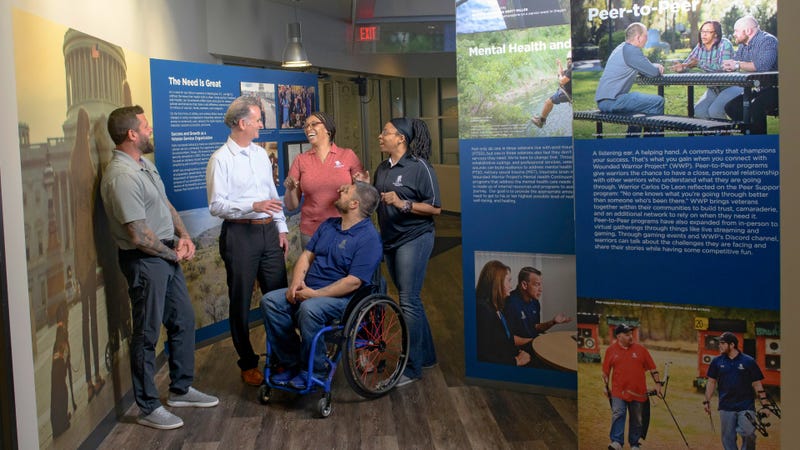
Financial worries and mental health struggles remain significant issues for post-9/11 wounded veterans.
That’s according to the just released Wounded Warrior Project Warrior Survey 3. More than 19,000 registered WWP warriors responded to the survey, which highlights critical quality-of-life challenges, including a sleep crisis that fuels PTSD, suicide risk, chronic illness, and economic instability.
“This survey is a call to action. We need to break down barriers to care, expand access to treatment, and make sure every warrior knows help is there when they need it,” said WWP CEO and retired Army Lt. Gen. Walt Piatt.
Piatt said none of the survey’s findings – 82.5% of respondents reported sleep problems; 80.3% reported anxiety; 76.7% percent depression; 76.5% PTSD; and 55.5% reported migraines or chronic headaches - surprised him.
“PTSD, TBI, and other mental and brain health conditions are a reality for many warriors,” he said. “We see it year after year — these challenges don’t go away on their own. What does surprise me is that we are not doing more. Too many warriors are still suffering in silence, and that’s not acceptable.”
Piatt said the survey began in 2010, and for 14 years has provided a clear, unfiltered look at the challenges WWP warriors face, their progress, and where more needs to be done.
“Nearly 19,000 warriors took part in the latest survey, representing a community of more than 185,000 registered warriors,” he said. “Their voices matter.”
The research isn’t just about data but about warriors lives, Piatt said.
“It tracks emerging trends, ensuring no warrior’s experience goes unheard,” he said. “It captures perspectives across service eras, injury types, and backgrounds, giving us the sharpest picture of what life after service truly looks like.”
Wave 3 introduces new comparative data on how WWP warriors’ experiences relate to other veterans and civilians, Piatt said.
“If we see anything in the survey results that suggests a warrior is at risk, our suicide prevention-trained teammates reach out directly — because no one should face these struggles alone,” he stressed. “This research strengthens our ability to adapt, innovate, and push forward — because warriors deserve more than support; they deserve solutions that change lives.”
Noting that sleep quality is one of the strongest indicators of well-being, Piatt said sleep directly impacts conditions like PTSD, depression, chronic pain, and financial well-being.
“Sleep, pain, and physical activity are deeply connected, and we must do more to address the full picture of warrior health,” he said. “Movement is medicine, and ensuring warriors have access to the care, resources, and opportunities to stay active is critical to long-term well-being. This research gives us a clearer picture of where change is needed, and we’re committed to pushing forward because every warrior deserves the opportunity to live a better life.”
The survey also found a 12.4% unemployment rate among veterans; another 7.7% experienced homelessness in the last 12 months, and 4.1% believe they may be homeless in the next year. Additionally, 37.3% reported food insecurity
“Too many warriors are fighting for basic needs — finding a job, keeping a roof over their heads, and putting food on the table,” said Piatt. “That should never be the reality for those who have served. WWP is taking action. We are expanding Warriors to Work, strengthening partnerships to fight food insecurity, and increasing financial wellness programs. These efforts create stability.
On average, Piatt said it takes seven to eight years for a warrior to connect with WWP.
“That gap is too long,” he said. “The first year after leaving service is critical, and we are working to bridge that gap. Programs like Warriors to Work and our holistic wellness model are designed to provide warriors with the right resources early — before financial hardships, unemployment, or homelessness become a crisis.”
Piatt said the new report lays out several steps both the public and private sectors can take to improve quality of life for veterans, including advancing policies that improve access to mental health resources enhancing the care and treatment for co-occurring chronic conditions, and expanding and strengthening suicide prevention training.
“We have a promise to keep,” said Piatt. “There is more work ahead, and we won’t stop until every warrior who needs support knows we are here. We won’t stop until we bring every warrior home — mind, body, and soul. We made a promise to be there no matter what, and we are going to keep that promise.”
To read the survey in full, visit here.
Reach Julia LeDoux at Julia@connectingvets.com.
